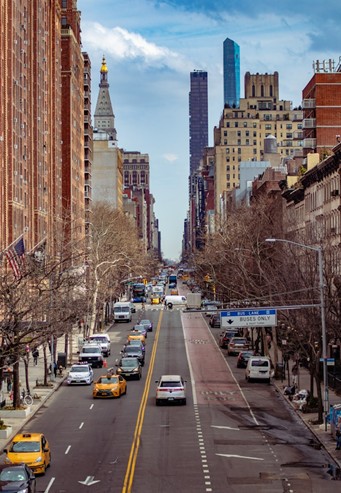
Urban resilience, the ability of cities to absorb, recover from, and adapt to various social, economic, and environmental shocks, is increasingly a focal point for city planners, real estate developers, and policymakers. In the face of rapid urbanization, climate change, economic fluctuations, and shifting demographics, cities must design spaces that not only thrive today but can withstand future challenges. One of the most promising approaches to fostering urban resilience lies in mixed-use developments that include affordable housing components.
This article explores why integrating affordable housing into mixed-use projects is critical for building resilient cities, how such developments create diverse and adaptable communities, and what challenges and solutions exist in implementing them effectively.
Mixed-use developments combine residential, commercial, cultural, and sometimes industrial spaces within a single district or building complex. Unlike single-use zoning, where homes, offices, and shops are separated, mixed-use projects promote proximity, walkability, and multifunctional use of land. This design model reduces commuting needs, fosters social interaction, and encourages economic activity around the clock.
Urban resilience refers to the capacity of urban systems - including infrastructure, communities, and economies - to anticipate, respond, and adapt to shocks such as natural disasters, economic recessions, or social unrest. Resilient cities emphasize flexibility, redundancy, inclusiveness, and sustainability.
When mixed-use developments integrate affordable housing, they help form socially and economically diverse neighborhoods, an essential ingredient for resilience. Affordable housing provides access to safe, stable living environments for low- and moderate-income residents, who might otherwise be displaced by rising housing costs in rapidly growing urban centers.
Cities that lack affordable housing risk becoming economically segregated, concentrating poverty in certain neighborhoods and wealth in others. This division undermines social cohesion, fuels inequality, and increases vulnerability to crises. When affordable housing is part of mixed-use projects, diverse populations live side by side, fostering social networks that enhance community support and collective problem-solving during emergencies.
Stable housing is a foundation for resilience. When residents have secure, affordable homes, they are better able to maintain employment, access health services, and invest in their communities. This stability is critical during economic downturns or disasters, reducing displacement and homelessness.
Affordable housing creates a local customer base for shops, restaurants, and services embedded in the same development. This proximity stimulates economic activity, supports small businesses, and creates jobs - all vital for the local economy.
Moreover, affordable housing attracts workers essential to the urban economy - teachers, healthcare aides, public safety officials, and service industry employees - who might otherwise be priced out. Their presence ensures that critical services remain staffed and communities continue to function smoothly in times of stress.
Mixed-use developments reduce reliance on personal vehicles by enabling residents to live close to work, schools, and amenities. This compact urban form lowers carbon emissions and reduces traffic congestion, contributing to environmental resilience.
Affordable housing components ensure that sustainable living options are available to all income levels, not just the affluent. Lower-income residents benefit from reduced transportation costs and healthier environments, while cities gain from decreased pollution and energy use.
Affordable housing located in mixed-use neighborhoods often grants residents better access to health services, fresh food, parks, and recreational facilities. This proximity is especially important during crises like pandemics, when travel may be restricted.
Diverse, walkable communities encourage physical activity and social interaction, which improve mental health and resilience to stress. By integrating affordable housing, cities avoid creating “food deserts” or health care deserts often found in economically segregated areas.
Mixed-use developments enable multiple functions within the same footprint. If one sector faces disruption - say, a retail store closes during an economic crisis - the residential and office components may continue operating, supporting local livelihoods.
Affordable housing helps ensure a constant resident population that can adapt and respond to changing economic or environmental conditions, providing a buffer against market volatility.
Residents of mixed-use, affordable housing neighborhoods often participate in local governance, community groups, and neighborhood associations. This engagement builds social capital - networks of trust and reciprocity that are crucial during emergencies.
Such communities can mobilize faster in disaster response, share resources, and support vulnerable members more effectively than fragmented or economically segregated areas.

Mixed-use projects frequently coincide with transit-oriented development, placing affordable housing near public transit hubs. This proximity not only reduces carbon footprints but ensures mobility for low-income residents, allowing them to access jobs, education, and healthcare - especially important when personal vehicle use is not an option.
Accessible transportation and infrastructure are fundamental to urban resilience, enabling rapid evacuation, emergency response, and economic recovery.
Despite the clear benefits, integrating affordable housing into mixed-use developments is not without hurdles:
Cost and Financing: Affordable housing components often require subsidies, tax incentives, or public-private partnerships to be financially viable for developers.
Community Opposition: “Not in my backyard” (NIMBY) sentiments can arise due to misconceptions about affordable housing impacting property values or safety.
Regulatory Barriers: Zoning laws and land use regulations may limit density or mixed uses, complicating project approval.
Design and Quality: Ensuring affordable units are well-integrated architecturally and do not appear segregated is key to social inclusion.
Incentives and Public-Private Partnerships: Governments can offer density bonuses, tax credits, or grants to encourage developers to include affordable units.
Community Engagement: Early involvement of residents in planning reduces opposition and fosters shared ownership of development goals.
Flexible Zoning: Adopting form-based codes or overlay districts can facilitate mixed uses and affordable housing inclusion.
High-Quality Design: Integrating affordable units seamlessly with market-rate housing through thoughtful architecture promotes social cohesion.
Mixed-use developments that incorporate affordable housing components represent a powerful tool for advancing urban resilience. By fostering diverse, economically inclusive, and environmentally sustainable communities, they help cities adapt and thrive amid social and economic uncertainties. Overcoming implementation challenges through innovative policies, community collaboration, and thoughtful design is essential to unlock the full potential of these developments.
As cities worldwide confront complex challenges - from climate change to housing affordability - embracing mixed-use projects with affordable housing is not just a policy option; it is a necessity for building stronger, more resilient urban futures.